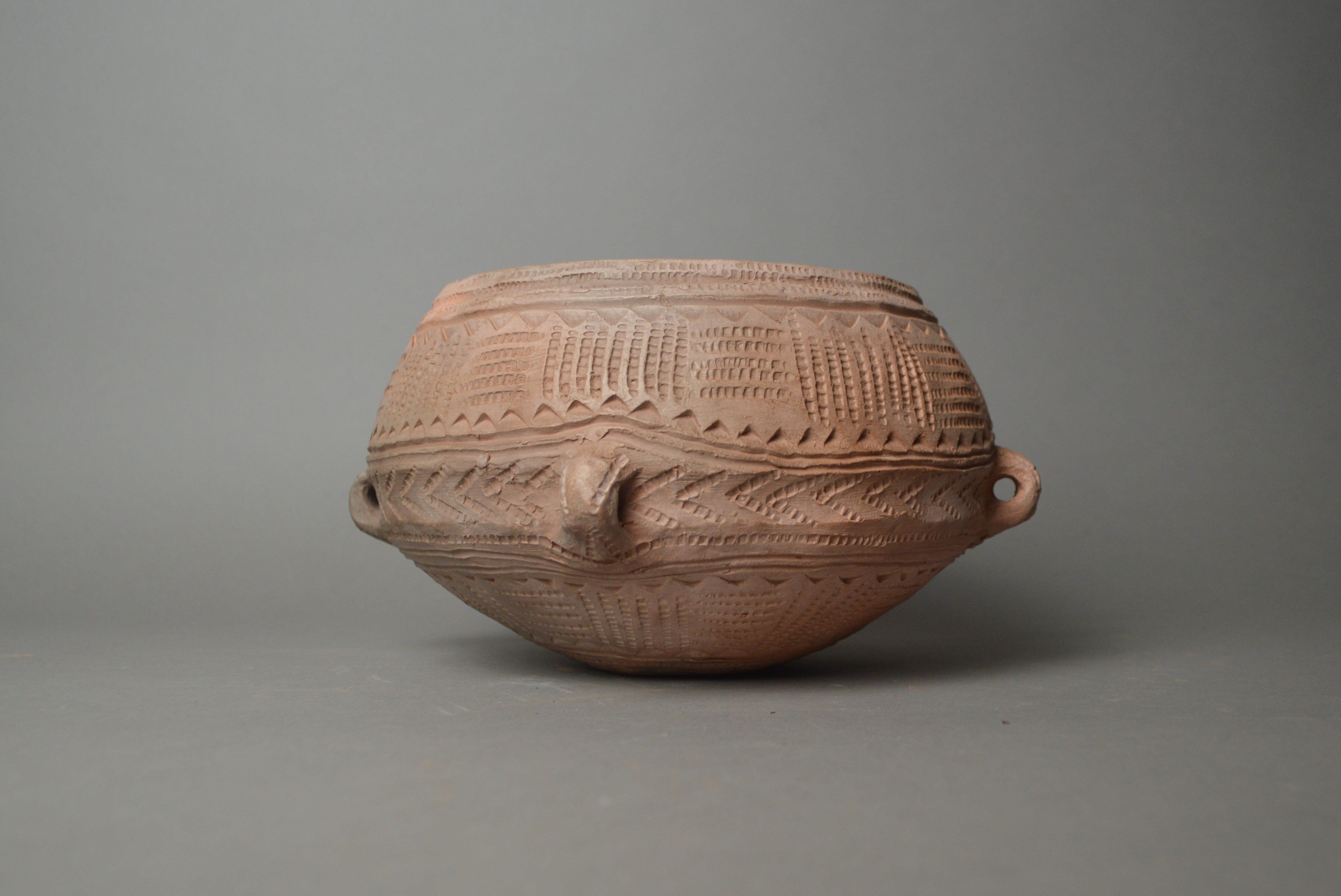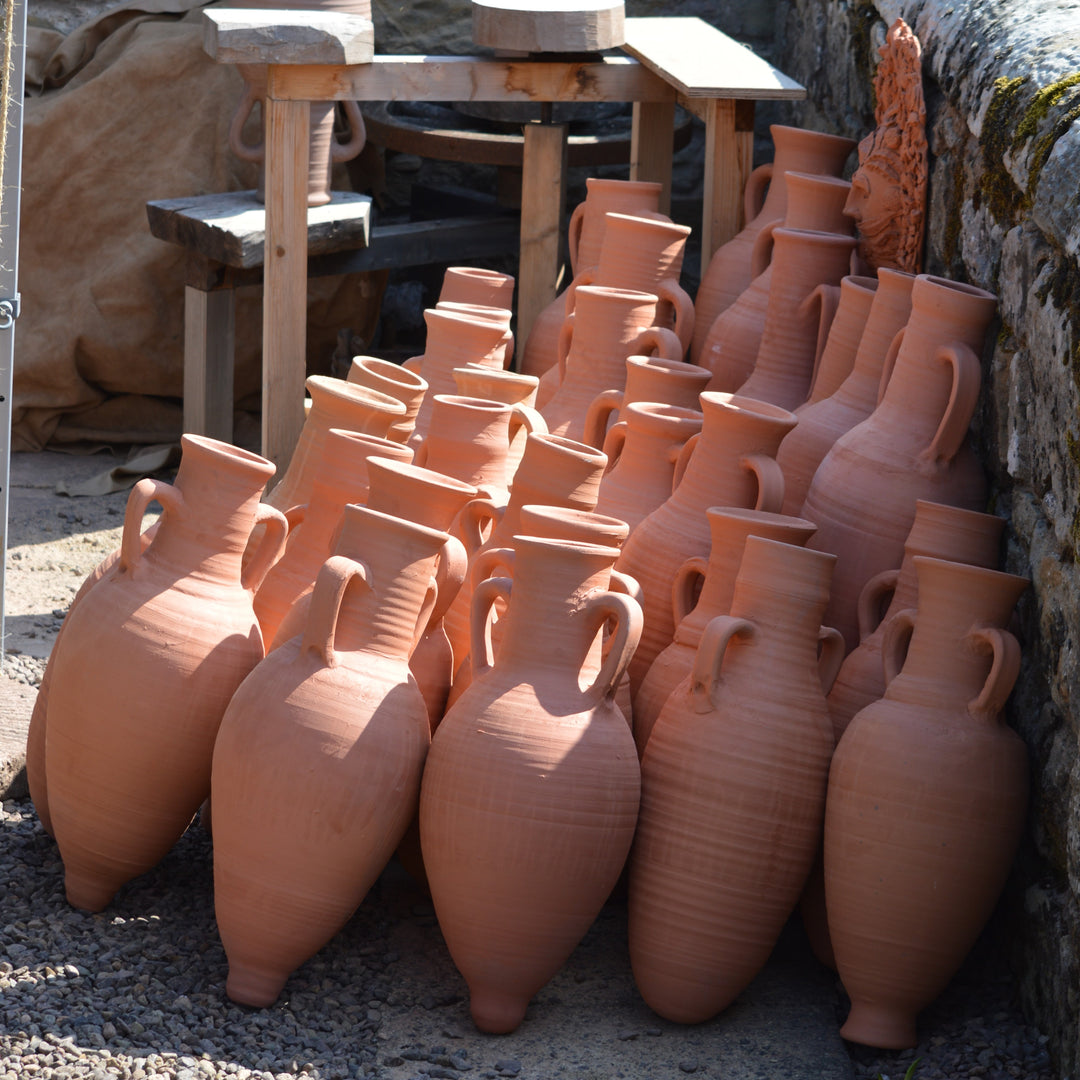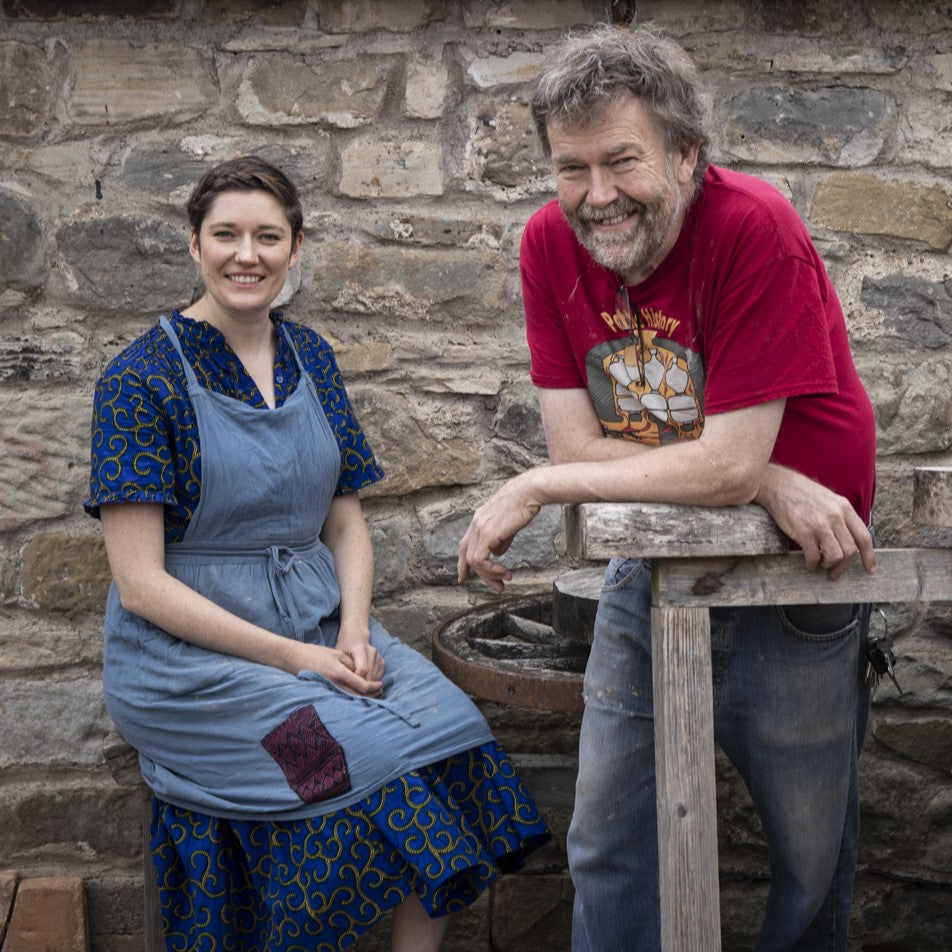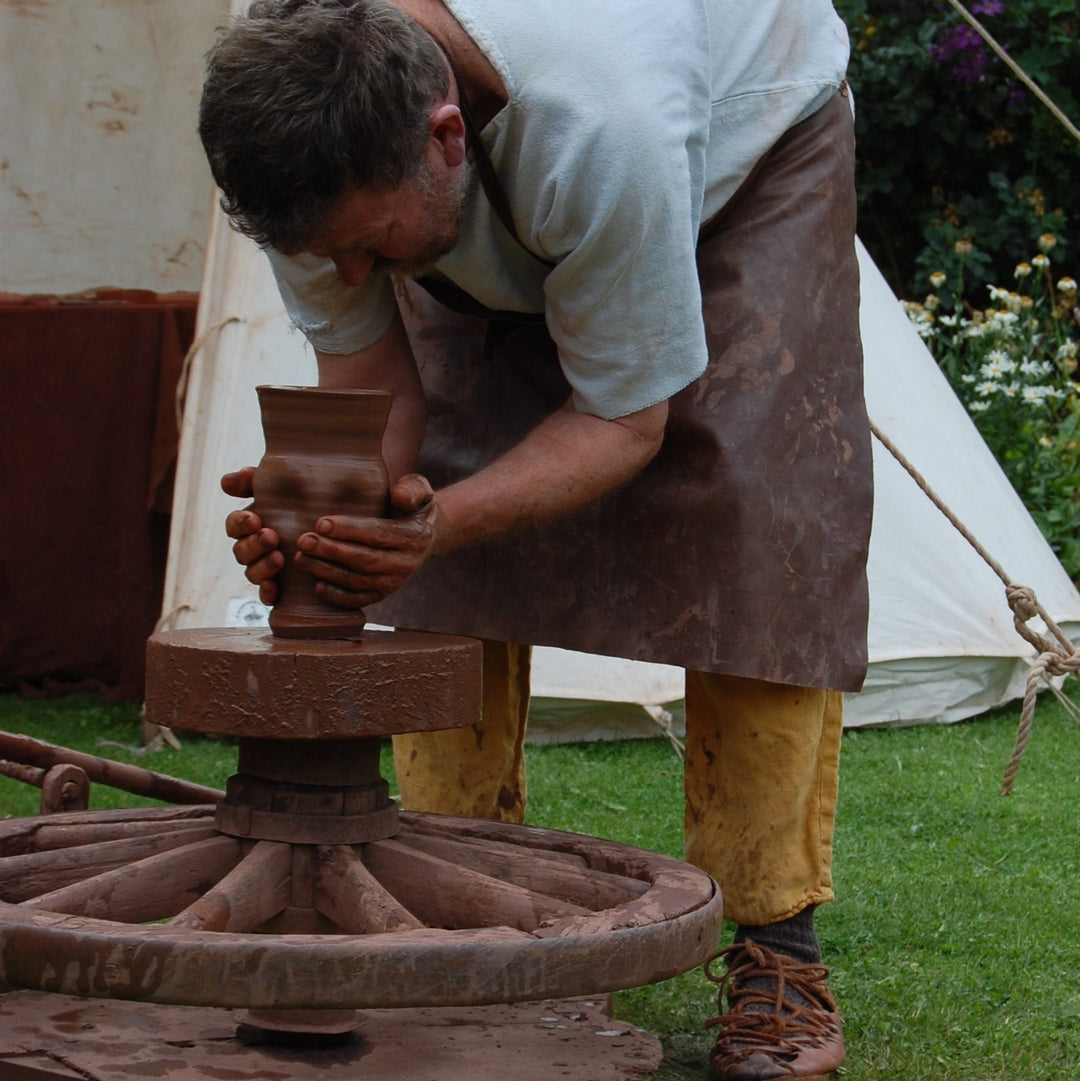Rusticated Jar
Details
These stunningly decorative and functional jars would have been wheel-thrown in workshops throughout Roman Britain for use in Roman kitchens to store food. Thick slip is then applied to the surface to create the decorative zigzag, a simple but when done well, very attractive form of decorative finish.
The distinctive and beautiful grey surface is caused by the firing technique, which involves starving the kiln of oxygen during the final stages of firing. It is a very modern-looking piece with a long history.
'Add To Cart' items are ready to send straight away. Please be aware that if bought alongside 'Pre-order' items, your order will be sent when all items are ready.
'Pre-order' items are made to order, and we will dispatch them as soon as we have handcrafted them for you; this usually takes 90 days, but international orders can take a little longer.
Materials
Reduction fired terracotta
Dimensions
Approx. 200 mm tall, 180 mm diameter
Production
This replica Roman pot has been hand made in Northumberland by Potted History, based on an original artefact. It has been fired to emulate the authentic Roman firing conditions to a temperature of between 800°C & 1000°C, as the original potters would have done nearly two thousand years ago. This process often results in variations of the surface colour and texture, as is found with original Roman Pottery and gives each pot its unique character.
Health and Safety
This is a Museum Quality Replica made using the tools and techniques that would have been used during the Roman era. As this is an unglazed pot with a porous surface, it will absorb some of the flavours of the food being stored, which does add to the flavour of future dishes. However, it does also mean that this pot does not meet modern Health and Safety standards, and therefore, we do not advise that it be used for storing food. When the Romans used these storage jars, they relied on applying sufficient heat to the cooking pot and their contents to ensure that all bacteria were killed. Heating to over 70°C for at least 10 minutes would have killed most disease-causing bacteria, and temperatures of 100°C would do even more.
Postage
All items are sent using a second-class postal service; if you wish to have an item sent first-class, please contact us for a quote. Many Thanks
SHIPPING
'Add To Cart' items are ready to send straight away. Please be aware that if bought alongside 'Pre-order' items, your order will be sent when all items are ready.
'Pre-order' items are made to order, and we will dispatch them as soon as we have handcrafted them for you; this usually takes 90 days, but international orders can take a little longer.
We ship our fabulous replicas worldwide.
Shipping costs are worked out during checkout. They are based on where you are in the world and how heavy your parcel is, which can be very variable.
All items are sent using a second-class postal service. If you wish to have an item sent first class, please contact us for a quote. Many Thanks
RETURNS
If you aren't completely satisfied with your Potted History piece, please get in touch to organise a return. Email us at
pottedhistory@rothburycreates.co.uk
Then you can send it back at your own cost in an unused condition within 30 days, and we'll refund you for the cost of the item or items returned. If you include your order number with the returned package, that will speed things up. Please leave any original packaging intact.
Our returns address is:
Potted History, Gregory Court, Rothbury, Northumberland, NE65 7SW
PRODUCT VARIATION
Please be aware that due to items being handmade and finished, colour variations will occur during the making process, and each replica will have some differences. Also, know that the item photographed may not be the one that you receive, and colours can appear differently on different screens. Please ensure you look at all the images to get a fully formed idea of the item you are ordering as we try to capture the variations within the images we share. If you prefer a specific colour variation, please contact us before ordering.















